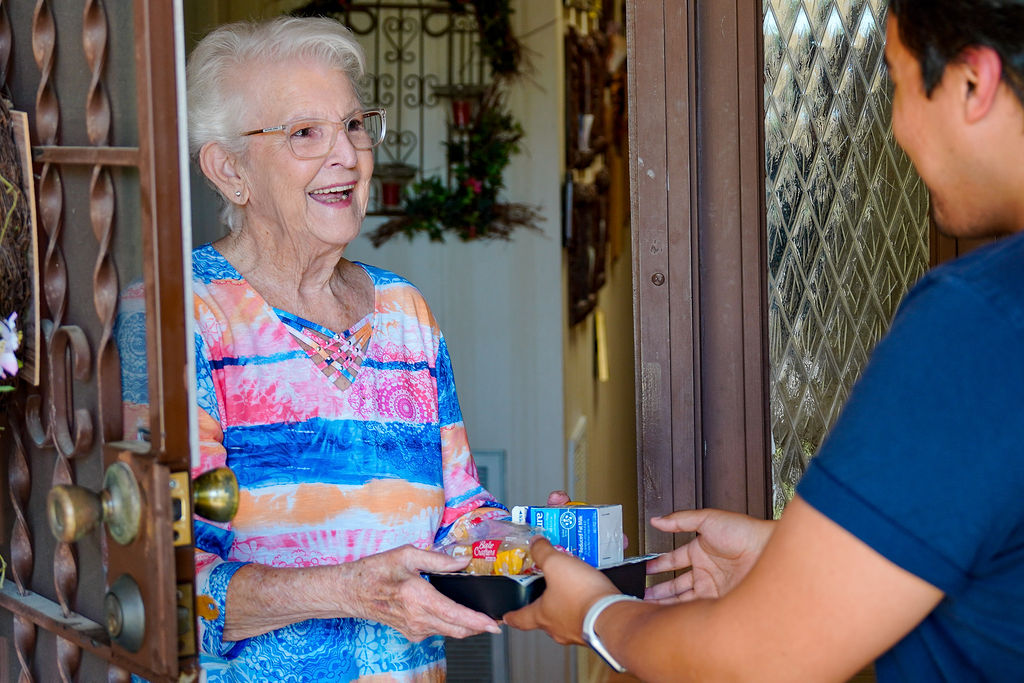
Mrs. Janie
Mrs. Janie Tope-Dawes, a 93-year-old Texan, once a poet, model, and secretary, faced deep isolation and health challenges after losing her husband and suffering a stroke. Livi...
Read This Story
On the surface, there’s nothing extraordinary about knocking on a door until you meet a Meals on Wheels volunteer. Then, you see a knock for what it is: a conduit to building a deep connection with a stranger that endures far beyond a nutritious meal.
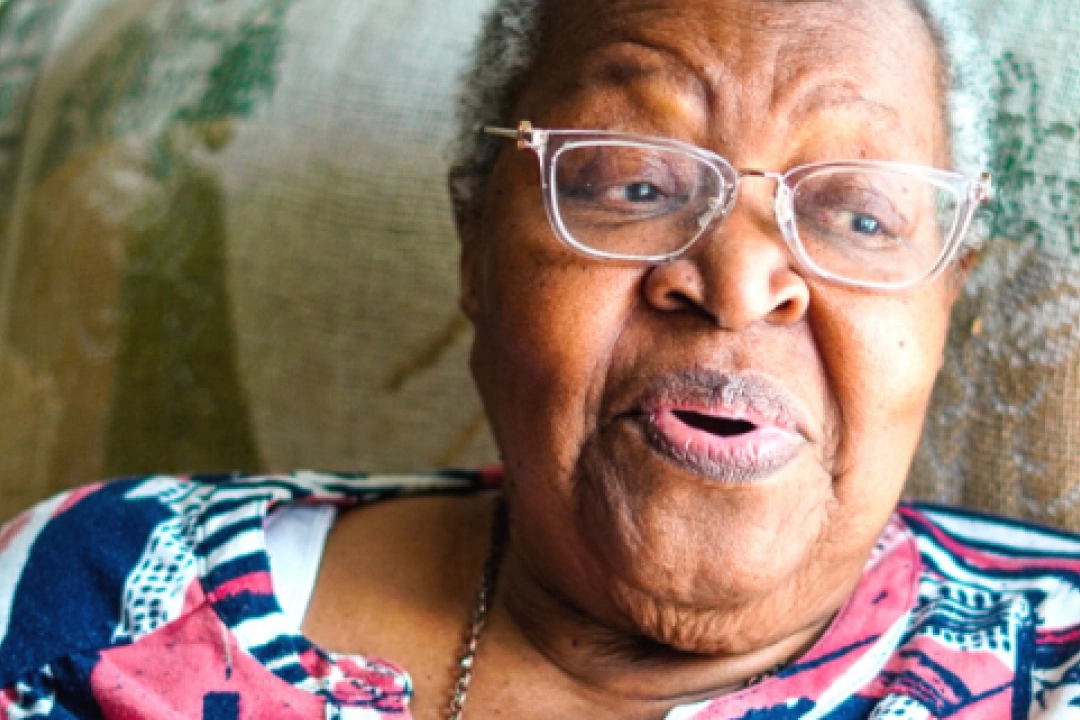
Ella Stewart spent a lifetime telling stories. To hear her paint, in vivid detail, the rich tapestry of her lineage and life demonstrates the depth and complexity of Meals on Wheels clients’ lived experiences and reminds us there’s so much wisdom we can gain from seniors.
As a storyteller, Ella keeps her mind sharp by reading, writing and boosting her cognitive health through a balanced diet.
Its proven nutritious meals support the healthy brain functions of seniors like Ella. They can even delay brain aging, preserving the ability of seniors to recall their past experiences.
We, in turn, receive the gift of stepping into seniors’ living dreams and helping them reawaken the past, even when the past conjures complex emotions, as Southern history often does for the Black community: aching nostalgia, loss, fear, resilience and enduring love.
In Raleigh, North Carolina, we were graced with the opportunity to visit Ella and retrace her roots.
Our unearthing of her scions began in 1918 when Ella’s parents married before enjoying a 61-year marriage, 37 of which they spent as Sharecroppers.
Her father, who grew up in what she describes as a “shanty,” was the youngest of 20 children. “His [mother] died when he was 11 or 12,” Ella recalls. “All he remembers is seeing her in a flower garden; shadows are her in the kitchen and the smell of sage.”
Ella shares it’s the only clear memory her father had of his mother and is why his love for her held so deeply throughout his life.
One of her most cherished stories is a retelling of her parents’ first meeting, passed down to Ella by her mother, father and uncle.
As a young man, her father would leave home at the beginning of each week, traveling 30+ miles by bus to work on a local farm in Raleigh. One particular week, a friend, Theodore McCallister, offered to host Ella’s father at his parents’ home so he could be closer to the farm.
“When he walked up to the porch, [my mother] was standing there with a pink ribbon in her hair,” Ella says. “And he looked at his friend and said, ‘There goes the girl I dreamed about two years ago. I dreamed about her two years ago just like that, and that’s the girl I’m going to marry.”
They wedded two years later, here in Wake County, North Carolina.
“That was their beginning,” Ella says.
Ella was born in 1944 and graduated from high school in New Bern, alongside the Neuse River near the North Carolina coast.
Ella’s family moved around often during her childhood.
Among her earliest memories, she recalls peeling apples and pears and her time on the debate team — once participating in a competition attended by then-Governor Terry Sanford.
She also notes turbulent times in the ‘50s and ‘60s, which she describes as “all hell breaking loose” in the South.
After high school, her grandparents’ farm was in jeopardy, and Ella, of working age, wanted to make enough money to help save her parent’s land. She shared her intentions with her late sister, Brenda, including word of the job advertisements she’d seen in local newspapers seeking in-home domestic service professionals in New York.
“My sister said, ‘What are you, a crazy person? You never been kissed, never been on a date, never rode a bus; you ain’t done nothing but been on the farm, you don’t know nothing. Momma and Daddy are not gonna let you go.’”
Still, she insisted and asked her sister to grab a newspaper from the local library. She wrote a note to an agency and secured a position caring for the children of a Jewish general practitioner.
Ella’s father reluctantly dropped her at the local bus station in his 1954 Plymouth — the ride into town from the country was the first time she’d seen white and black-only signs — and she relocated to New York.
Ella shared that, in her family’s eyes, her leaving home was the only thing worse than losing their land.
The move was meant to be short-term, and her family prayed every night for her safe return; she wouldn’t leave New York until 24 years later.
In New York, her employers became a second family; they cared for her and introduced her to the daughter of a patient: another young Black girl from a middle-class family who remains one of Ella’s oldest friends, for whom she stood as maid of honor.
Once she left her job in New York, she enrolled at Queens College and dreamed of moving to San Francisco before returning home in 1987 after falling ill. There, she began recording her parents, who often sing old hymns at the end of the day, recordings that transport Ella to a different time and place, like in this moment.
She eventually recovered before relocating again to Charlotte, where she lived through the early ‘90s, where she decided to become a storyteller. During her career, she’s written plays and been interviewed by museums. In retirement, she spends her free time writing a book that will explore her family’s heritage and include many of the stories she shared with Meals on Wheels.
Her experiences nurtured a passion for storytelling and appreciation for history, one that time, aging or injury cannot steal away.
Two years ago, she injured herself and required hip surgery. Her home healthcare provider introduced her to her local Wake County Meals on Wheels provider, and she now receives regular meals. The meals she receives are vital, given her diminished mobility; she can’t stand for long periods, though she still enjoys cooking when able.
Ella shares that Meals on Wheels has made life a little easier, and she enjoys the fruit, bread and milk.
She also cherishes the relationship she’s developed with Clay, one of the volunteers who regularly visits her and even occasionally brings his kids along with him and has occasionally helped her prepare chili with a thoughtful stir of the pot. They initially bonded on football when he discovered Ella was a Tom Brady fan. Their friendship has only deepened.
For Ella, the little things matter most, like the rose she received one Valentine’s Day from another volunteer.
She continues to collect memories and friends, even at an advanced age, with food as the conduit.
Ella describes feeling like nomads when her family moved so often to “stay ahead of the hate” and seek opportunity during a period in American history when ignorance, segregation, racism, and the sentiment and violence those ideas manifested were the defining characteristics of the South.
“‘I want you to remember something, chirren [children], it’s not the place, it’s the people,’” Ella recalls her father saying.
More than the meals, that’s what Meals on Wheels represents for individuals like Ella who’ve lived rich lives and still crave connection — a way to overcome the isolation that, coupled with pervasive hunger, is a silent crisis among senior populations who are living longer than ever before.
That, in addition to keeping her mind sharp.
“My 100-year-old former neighbor, Mrs. Williams, looked forward to Meals on Wheels because it was a knock on the door and a little conversation,” Ella says.
“There are people here [like me] that feel isolated. I feel isolated because I used to travel to different states telling stories. I had a great life. I’m a people person, and it’s good to know you’re gonna have somebody knock on your door, somebody that will smile and be friendly.”
People who will listen to her stories and, perhaps, pass them on.

Mrs. Janie Tope-Dawes, a 93-year-old Texan, once a poet, model, and secretary, faced deep isolation and health challenges after losing her husband and suffering a stroke. Livi...
Read This Story
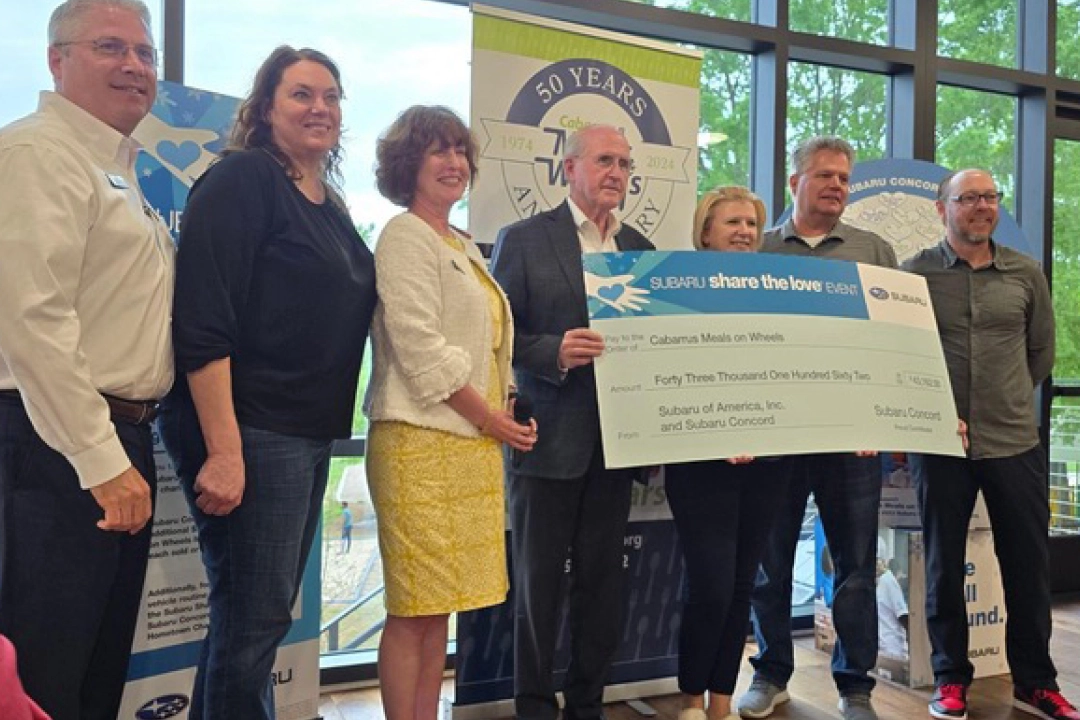
Whitney Marti, a volunteer with Cabarrus Meals on Wheels in Concord, North Carolina, has spent over a decade delivering meals and providing companionship to seniors, inspired ...
Read This Story
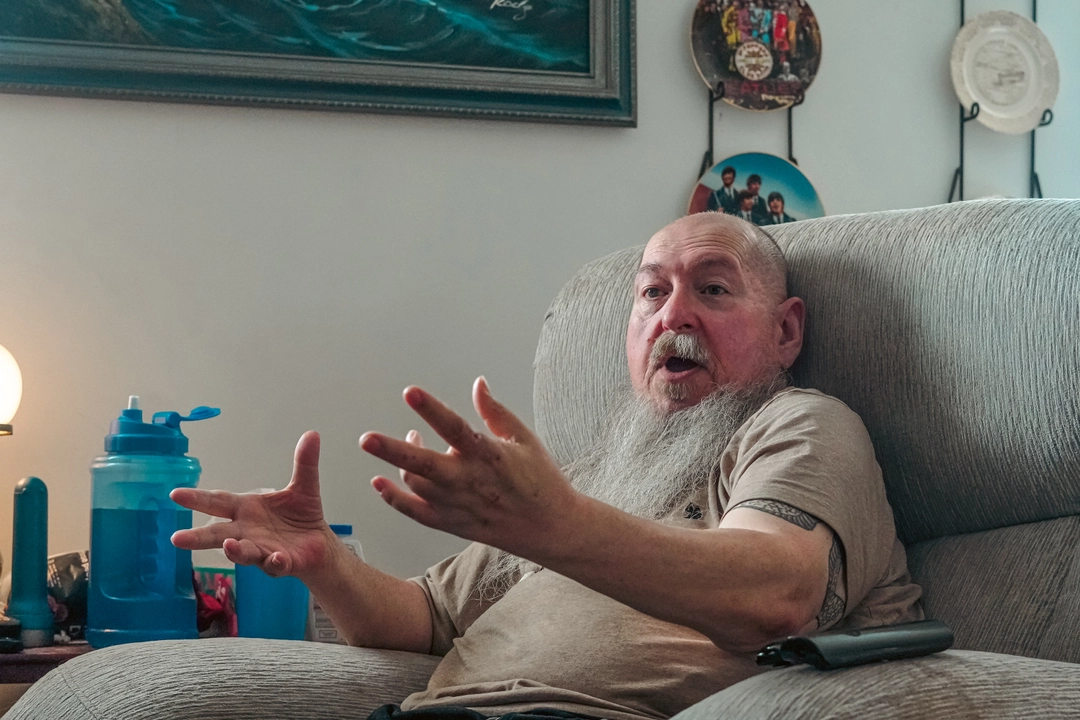
Joel Roy, a retired high school teacher, faces mobility issues and health challenges but wants to maintain their independence. Meals on Wheels has been essential in helping hi...
Read This Story
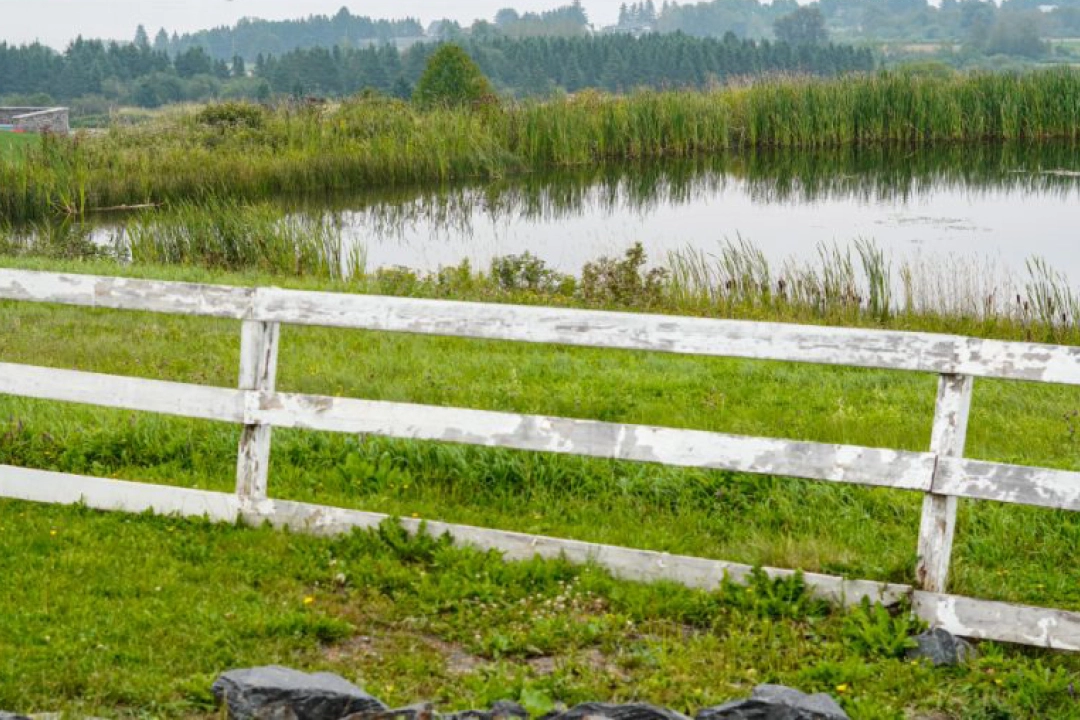
Presque Isle, Maine, is grappling with an aging population and youth outmigration, which strains services like Meals on Wheels. With 25% of residents over 65 and a projected r...
Read This Story